















































Common benefits of Millet
Health Benefits
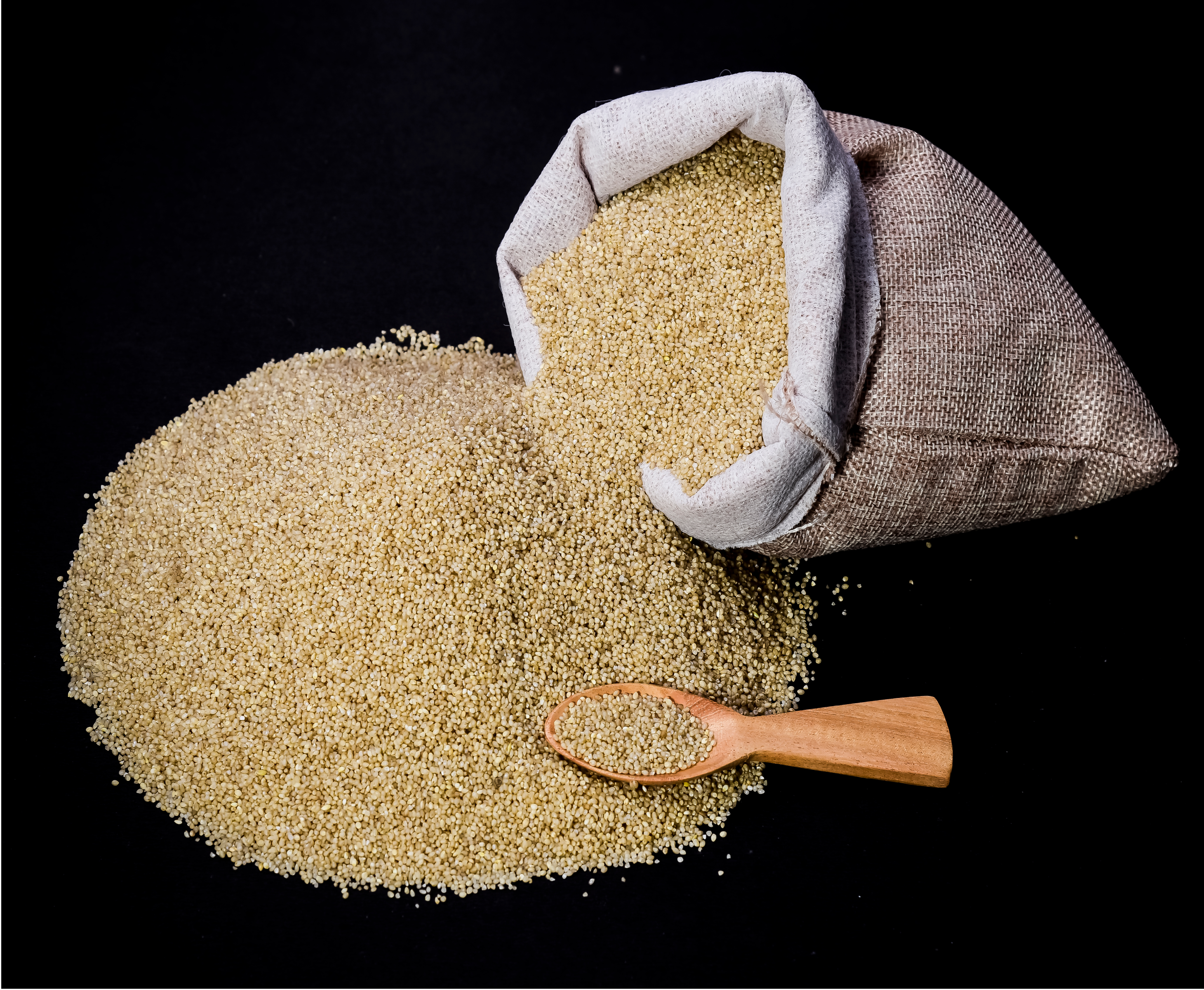
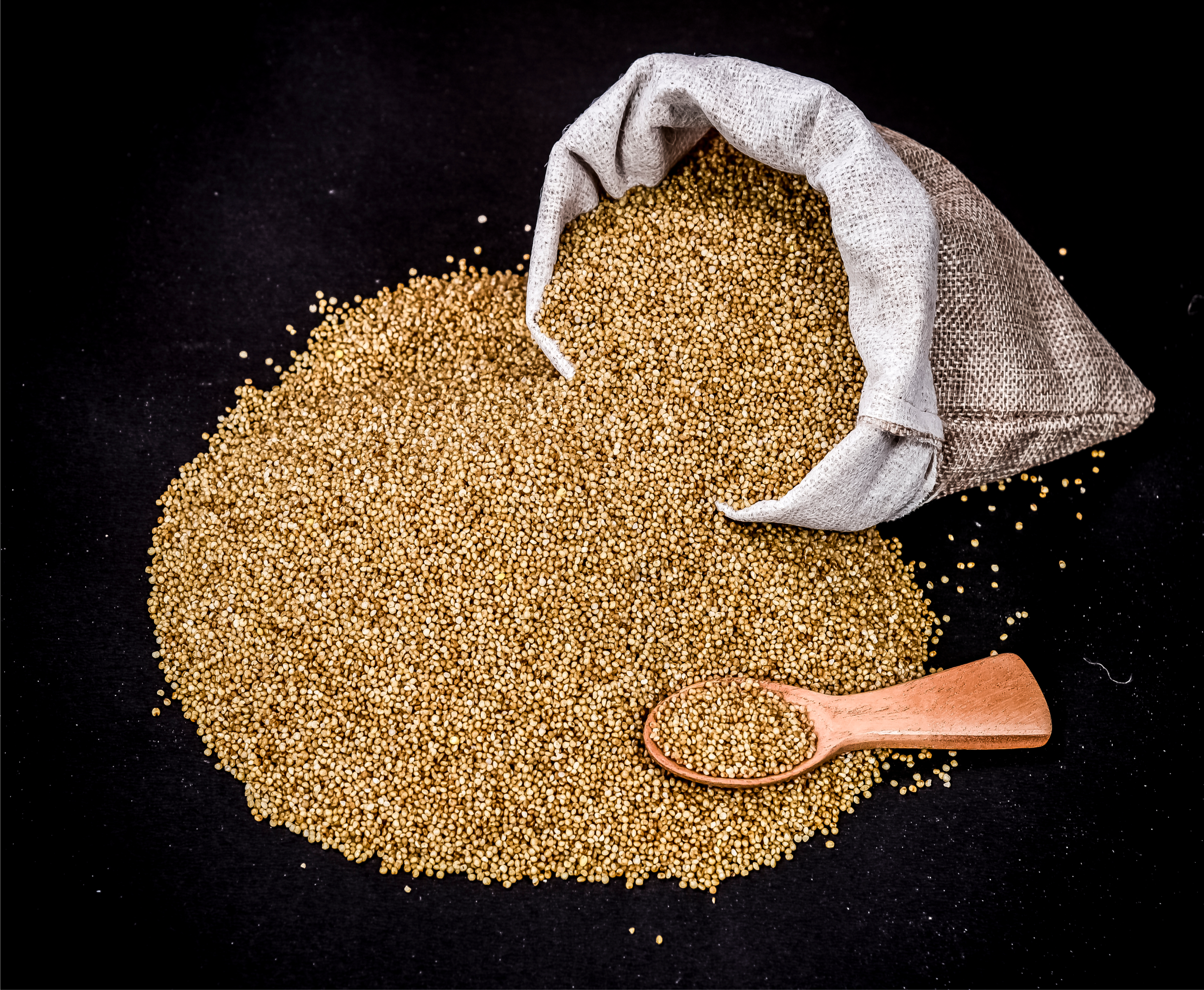
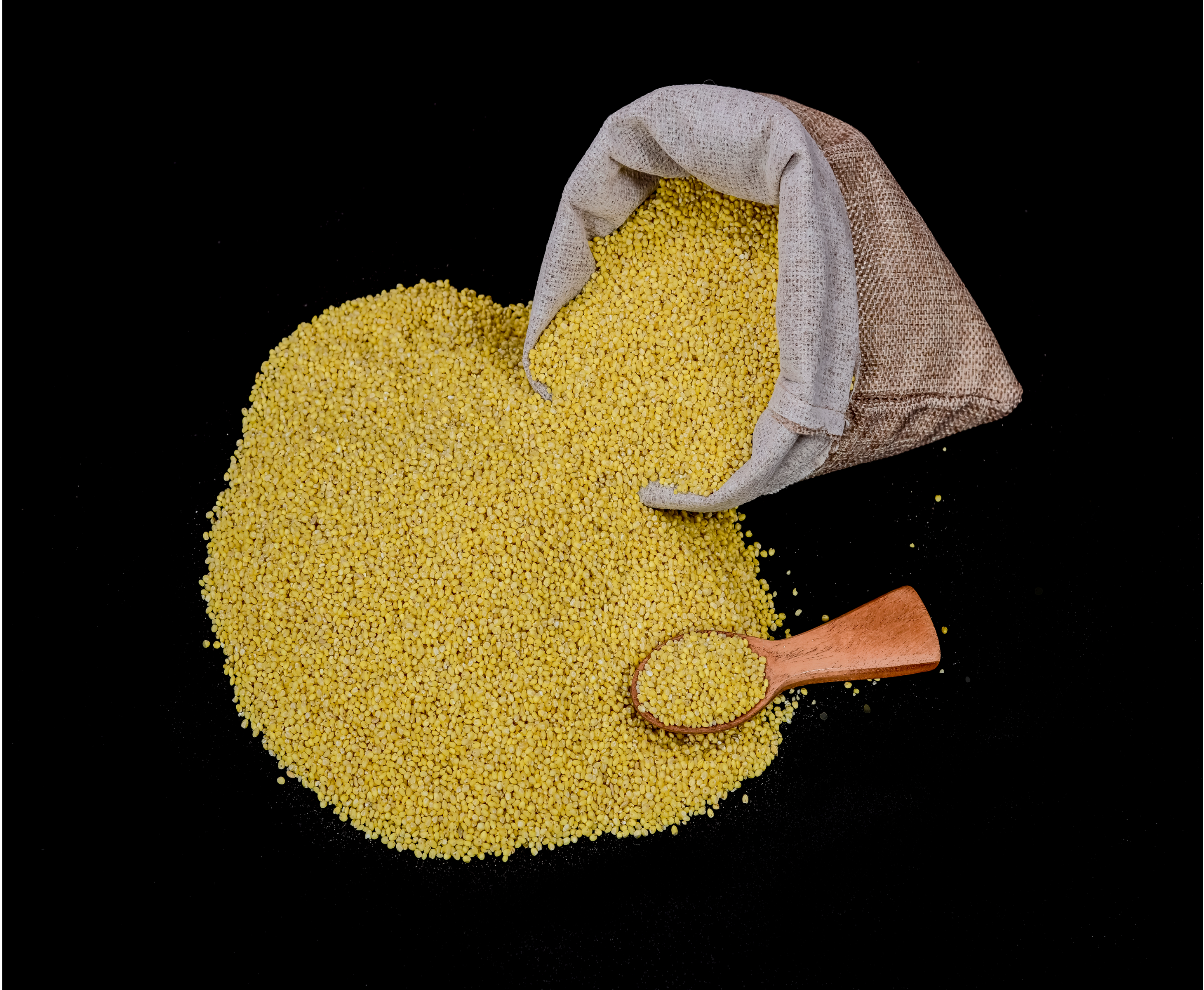
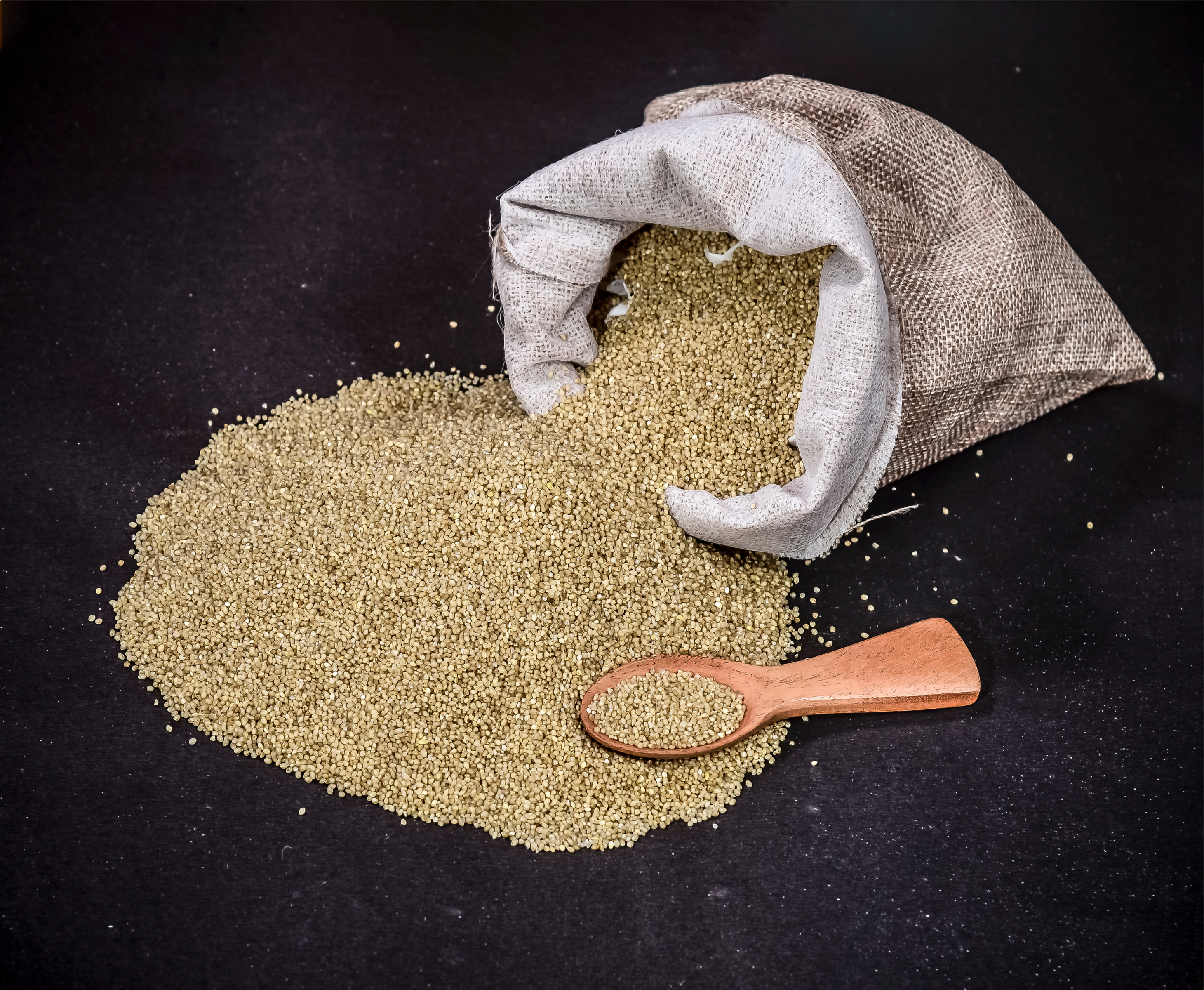
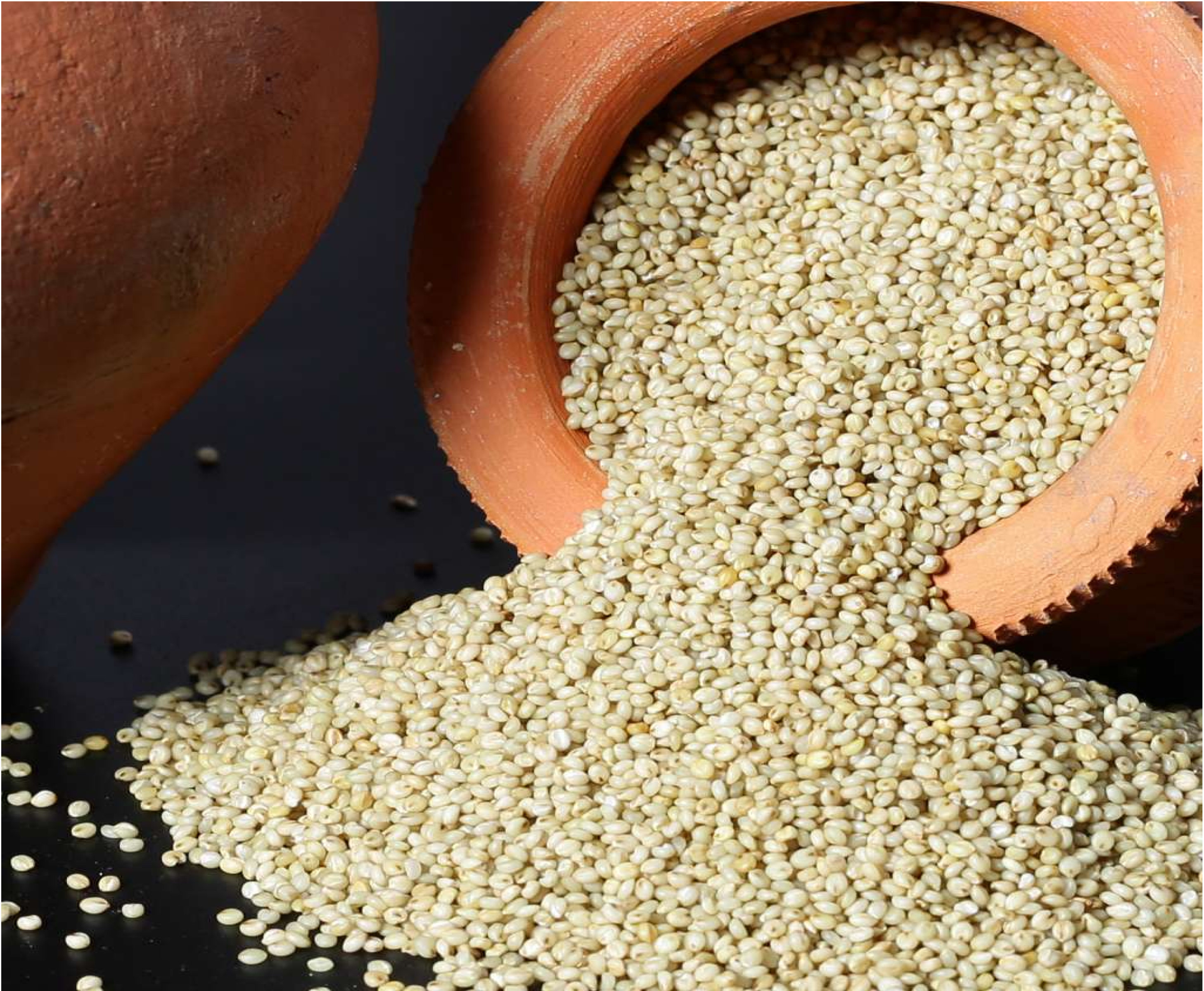
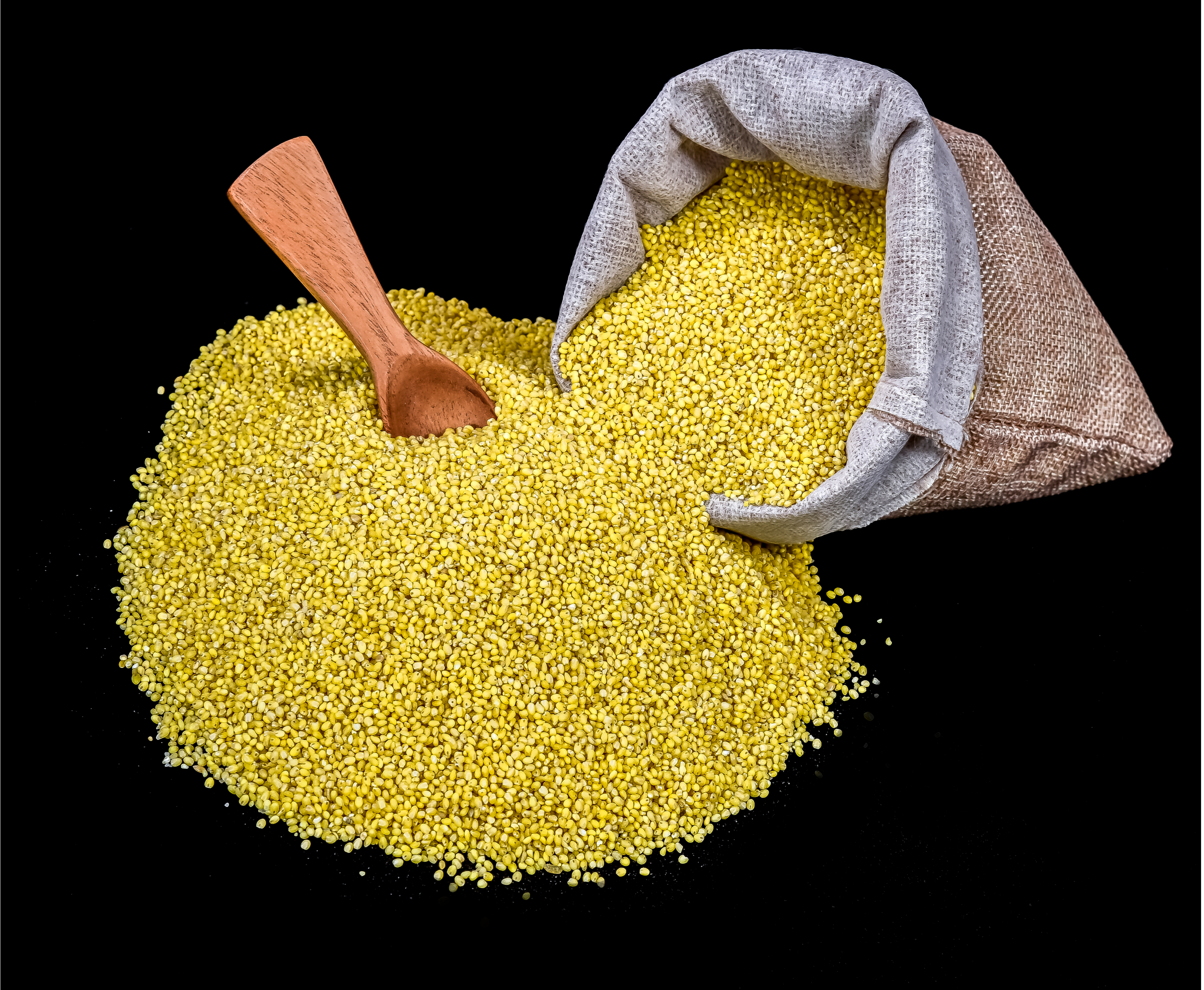
|
Millets/ cereals |
Carbo- hydrates(g) |
Protein (g) |
Fat (g) |
Energy (Kcal) |
Crude fibre(g) |
Mineral matter(g) |
Ca (g) |
P (g) |
Fe (g) |
|---|---|---|---|---|---|---|---|---|---|
| Sorghum | 67.68 | 9.97 | 1.73 | 334.13 | 1.7 | 1.6 | 25 | 222 | 4.1 |
| Pearl millet | 61.78 | 10.96 | 5.43 | 347.99 | 2.1 | 2.3 | 42 | 296 | 8 |
| Finger millte | 66.82 | 7.16 | 1.92 | 320.74 | 3.6 | 2.7 | 364 | 283 | 4.62 |
| Foxtail millet* | 60.09 | 12.30 | 4.30 | 331.02 | 8.0 | 3.3 | 31 | 290 | 5 |
| Proso millet* | 70.40 | 12.50 | 1.10 | 341.06 | 7.2 | 1.9 | 14 | 206 | 10 |
| Kodo millet | 66.19 | 8.92 | 2.55 | 331.73 | 9.0 | 2.6 | 15.27 | 188 | 2.34 |
| Little millet | 65.55 | 8.92 | 2.55 | 346.31 | 7.6 | 1.5 | 16.06 | 220 | 1.02 |
| Barnyard millet* | 65.55 | 6.20 | 2.20 | 307.12 | 9.8 | 4.4 | 11 | 280 | 15 |
| Rice (raw,milled) | 78.24 | 7.94 | 0.52 | 356.35 | 0.2 | 0.6 | 10.96 | 160 | 1.02 |
| Wheat (whole) | 64.721 | 10.59 | 1.47 | 321.94 | 1.2 | 1.5 | 39.4 | 306 | 3.97 |
|
Millets/ cereals |
Mg | Na | K | Cu | Mn | Mb | Zn | Cr | Si | Cl |
|---|---|---|---|---|---|---|---|---|---|---|
| Foxtail millet* | 81 | 4.6 | 250 | 1.40 | 0.60 | 0.070 | 2.4 | 0.030 | 171 | 37 |
| Proso millet | 153 | 8.2 | 113 | 1.60 | 0.60 | - | 1.4 | 0.020 | 157 | 19 |
| Finger millte | 146 | 11.0 | 408 | 0.47 | 5.49 | 0.102 | 2.53 | 0.028 | 160 | 44 |
| Little millet | 91.41 | 8.1 | 129 | 1.00 | 0.68 | 0.016 | 1.82 | 0.180 | 1.49 | 13 |
| Barnyard millet* | 82 | - | - | 0.60 | 0.96 | - | 3 | 0.090 | - | - |
| Kodo millet | 122 | 4.6 | 144 | 1.60 | 1.10 | - | 1.65 | 0.020 | 136 | 11 |
| Sorghum | 133 | 7.3 | 131 | 0.46 | 0.78 | 0.039 | 1.96 | 0.008 | 54 | 44 |
| Pearl millet* | 124 | 10.9 | 307 | 1.06 | 1.15 | 0.069 | 2.76 | 0.023 | 147 | 39 |
| Rice | 90 | - | - | 0.14 | 0.058 | 1.21 | 0.004 | - | - | |
| Wheat | 125 | 17.1 | 284 | 0.68 | 2.29 | 0.051 | 2.85 | 0.012 | 128 | 47 |
|
Millets/ cereals |
Thiamin (mg) |
Niacin (mg) |
Riboflavin |
Vitamin A (carotene) (mg/100g) |
Vit B6 (mg/100g) |
Folic Acid (mg/100g) |
Vit B5 (mg/100g) |
Vit E (mg/100g) |
|---|---|---|---|---|---|---|---|---|
| Foxtail millet* | 0.59 | 3.20 | 0.11 | 32 | - | 15 | 0.82 | 31 |
| Proso millet* | 0.41 | 4.50 | 0.28 | 0 | - | - | 1.2 | - |
| Finger millte | 0.37 | 1.34 | 0.17 | 42 | - | 34.66 | - | 22 |
| Little millet* | 0.26 | 1.29 | 0.05 | 0 | - | 36.20 | - | - |
| Barnyard millet* | 0.33 | 4.20 | 0.10 | 0 | - | - | - | - |
| Kodo millet | 0.29 | 1.49 | 0.20 | 0 | - | 39.49 | - | - |
| Sorghum | 0.35 | 2.10 | 0.14 | 47 | 0.21 | 39.42 | 1.25 | 12 |
| Pearl Millet | 0.25 | 0.86 | 0.20 | 132 | - | 36.11 | 1.09 | 19 |
| Rice | 0.05 | 1.69 | 0.05 | 0 | - | 9.32 | - | - |
| Wheat | 0.46 | 0.15 | 0.15 | 64 | 0.57 | 30.09 | - | - |